Sleep Quality Enhanced by Synergistic Effects of Taurine
Table of Contents

Many adults struggle with sleep every night, searching for solutions that truly support rest. Taurine, especially when paired with magnesium, offers a unique approach. Together, these nutrients promote calmness and improve sleep quality by supporting the brain and relaxing the body. Studies highlight that magnesium taurate combines the calming effects of taurine with magnesium’s sleep-supporting properties, making it gentle on the stomach and effective for better sleep. The Synergistic Effects of these compounds can help those experiencing restless nights.
| Indicator | Statistic | Source |
|---|---|---|
| Adults reporting insomnia symptoms worldwide | Over 30% | The Journal of Neuropsychiatry and Clinical Neuroscience, 2021 |
| Adults who say they sleep somewhat well or not at all well | 62% | Philips, 2019 |
| Adults reporting sleep disturbances at least once every night | Up to 67% | Philips, 2019 |
| Survey respondents diagnosed with a sleep disorder | 25% | SingleCare, 2024 |
| Adults in the U.S. with a sleep disorder | About 70 million | Sleep Doctor, 2024 |
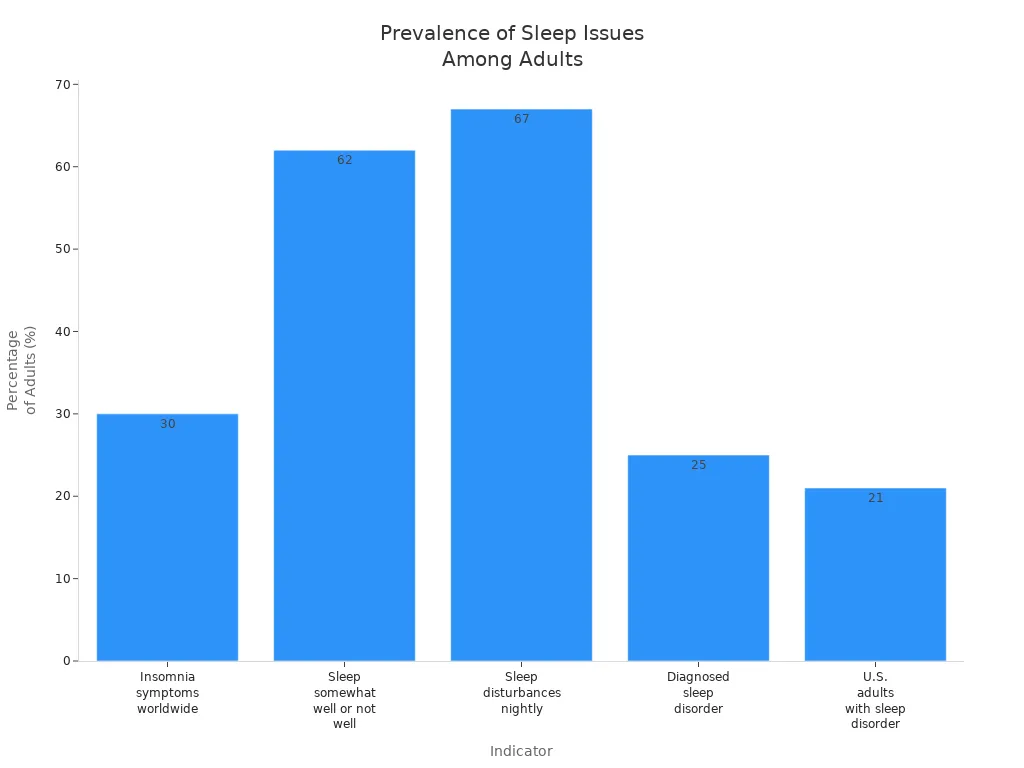
Synergistic Effects on Sleep

Magnesium and Taurine Together
Magnesium and taurine create a powerful combination that supports restful sleep. This synergistic relationship enhances the calming effects on the nervous system, leading to a more stable and restorative sleep cycle. Magnesium activates GABA receptors, which help calm nerves and relax muscles. Taurine amplifies these effects by further modulating GABA activity and supporting cellular hydration. When combined, these nutrients promote muscle relaxation and reduce stress, which can improve sleep quality for many individuals.
Magnesium taurate, a chelated form that combines both magnesium and taurine, stands out for its ability to maintain sleep continuity. Taurine acts as a semi-sedative amino acid, promoting brain relaxation and enhancing GABA activity. This combination helps prevent spontaneous awakenings during the night. Taurine also assists magnesium absorption, increasing its bioavailability and effectiveness. By modulating glycine receptors, taurine adds another layer of support for deep, uninterrupted sleep.
Tip: Magnesium taurate is gentle on the stomach and can be a suitable option for those sensitive to other forms of magnesium.
The synergistic effects of magnesium and taurine extend beyond simple relaxation. Together, they support neurotransmitter systems involved in sleep regulation, helping individuals transition smoothly into deeper sleep stages. This partnership not only calms neural activity but also supports the body’s natural sleep architecture.
Deep, Restful Sleep
The impact of magnesium and taurine on sleep duration and quality is significant. Magnesium taurate promotes relaxation and helps the body enter deep, restorative sleep by stimulating GABA production. GABA receptors, influenced by magnesium, play a role in melatonin production, which prepares the body for sleep. Taurine supports brain relaxation and helps maintain sleep continuity by reducing spontaneous awakenings and aiding the return to sleep after waking.
Magnesium regulates neurotransmitters such as GABA and melatonin, both critical for sleep onset and maintenance. Taurine enhances GABA activity, promoting nervous system relaxation and potentially reducing nighttime awakenings. Many individuals with insomnia report fewer interruptions and longer periods of deep sleep when using magnesium and taurine together. This combination has a positive effect on sleep, especially for those who struggle with frequent awakenings or difficulty returning to sleep.
Magnesium deficiency often leads to agitated sleep and frequent awakenings. Supplementation with magnesium taurate can address these issues by calming the central nervous system and reducing muscle cramps. Taurine, structurally similar to GABA and glycine, interacts with GABA receptors to inhibit neuronal excitation. This produces a calming effect and supports melatonin metabolism, which is essential for deep sleep phases.
Magnesium and taurine also influence overall sleep patterns, including REM and non-REM cycles. Magnesium supports the parasympathetic nervous system, improving both deep and REM sleep. Taurine boosts deep sleep phases and reduces nighttime awakenings by supporting the GABAergic system. Supplementation with magnesium (350 mg) and taurine (2 grams) taken 30 minutes before bedtime has been reported to enhance sleep quality by promoting relaxation and better sleep architecture.
| Magnesium Form | Sleep Efficacy & Benefits | Safety & Side Effects | Best For |
|---|---|---|---|
| Magnesium Taurate | Promotes relaxation and cardiovascular support; calming effect | Generally safe; less common and harder to find | General relaxation and cardiovascular health |
| Magnesium Glycinate | Supports relaxation and sleep quality; well-absorbed | Well-tolerated; fewer gastrointestinal issues | Those needing gentle, well-absorbed form |
| Magnesium Threonate | Crosses blood-brain barrier; supports sleep and cognitive function | Safe but more expensive | Sleep plus cognitive support seekers |
| Magnesium Citrate | Supports muscle relaxation; may aid occasional sleep | Mild laxative effects at high doses | Cost-effective option with digestive support |
| Magnesium Malate | Supports energy and muscle function; may improve sleep indirectly | Generally safe | Athletes and those needing muscle support |
| Magnesium Oxide | Provides magnesium but lower absorption; less effective for sleep | Possible digestive discomfort | Basic, economical supplement seekers |
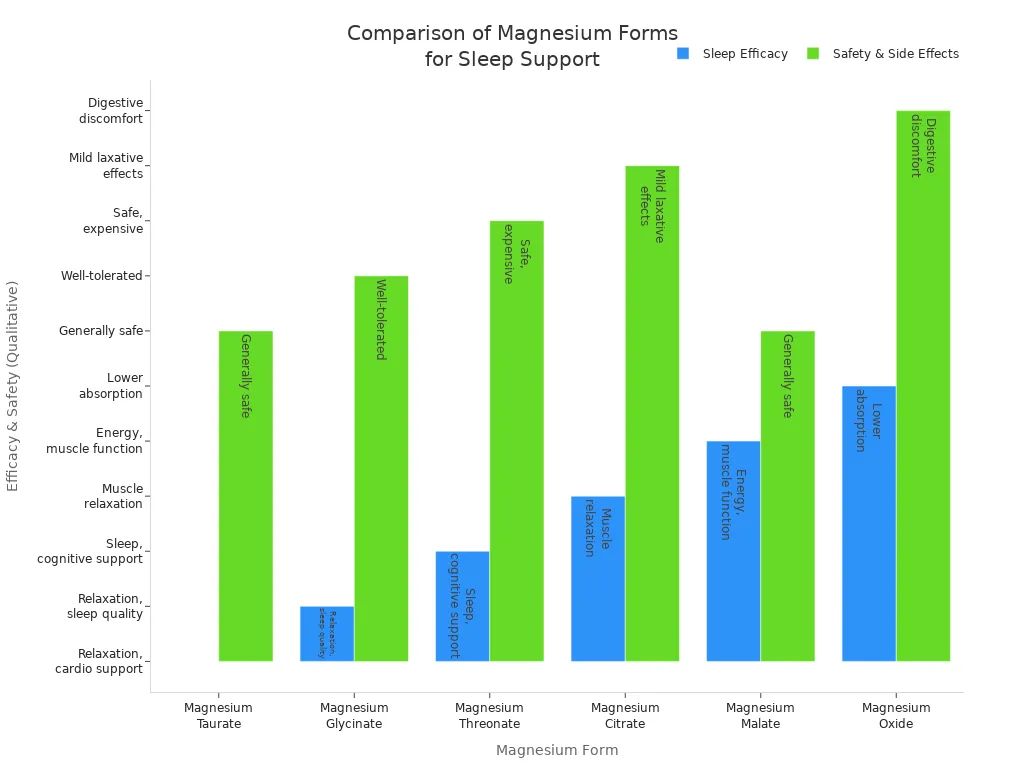
Magnesium acetyl taurate, a combination of magnesium and taurine, has shown neuroprotective properties and reduces anxiety in animal studies. This form is rapidly absorbed and crosses the blood-brain barrier, enhancing magnesium levels in the brain and potentially decreasing anxiety symptoms. These effects contribute to better sleep and improved sleep quality.
Magnesium and taurine together offer a safe and effective approach for those seeking natural ways to improve sleep quality. Their synergistic effects help regulate neurotransmitters, support deep and REM sleep, and reduce nighttime awakenings. Individuals with insomnia or disrupted sleep patterns may benefit from this combination, experiencing longer, more restful nights and a higher overall quality of sleep.
What Is Taurine?
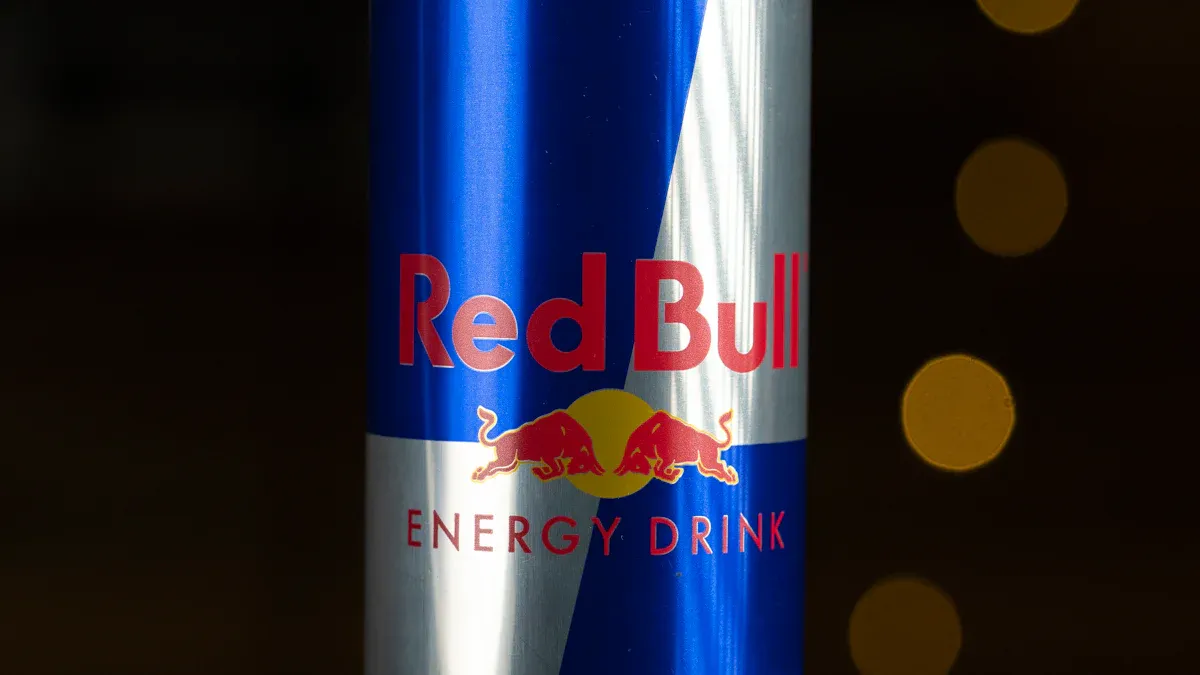
Taurine is a naturally occurring organic compound found in many tissues throughout the body. Scientists classify taurine as a non-proteinogenic amino sulfonic acid. Unlike typical amino acids, taurine does not help build proteins. Instead, it contains a sulfonic acid group, which gives it unique properties. Taurine is present in the brain, heart, muscles, and eyes. The body can make some taurine, but people often need to get more from food, especially during periods of growth or stress. Because the body’s own production may not always meet its needs, taurine is considered a conditionally essential amino acid.
Benefits of Taurine
Taurine supports many important health functions. It helps protect the brain and nerves, acting as a neuroprotective agent. Taurine also works as an antioxidant, fighting harmful molecules that can damage cells. The compound plays a key role in heart health by helping control blood pressure and reducing the risk of heart disease. Taurine supports kidney function and helps regulate blood sugar, which benefits people with diabetes. In infants, taurine is vital for brain and eye development. Older adults benefit from taurine’s ability to maintain muscle strength and reduce inflammation. Athletes may notice improved muscle performance and less muscle loss with taurine. These health benefits make taurine important for people of all ages.
| Physiological Benefit Area | Key Effects and Mechanisms |
|---|---|
| Neuroprotection | Protects brain cells, reduces inflammation, supports neuron growth |
| Antioxidant | Neutralizes harmful molecules, prevents cell damage |
| Cardiovascular Benefits | Lowers blood pressure, protects the heart, reduces risk of heart disease |
| Renal Protection | Supports kidney health, prevents cell damage |
| Anti-diabetic Actions | Improves insulin sensitivity, helps control blood sugar |
| Neonatal Health | Supports brain and eye development in infants |
| Elderly Health | Maintains muscle strength, reduces inflammation |
| Muscular Function | Improves muscle performance, reduces muscle loss |
| Retinal Development | Supports healthy vision |
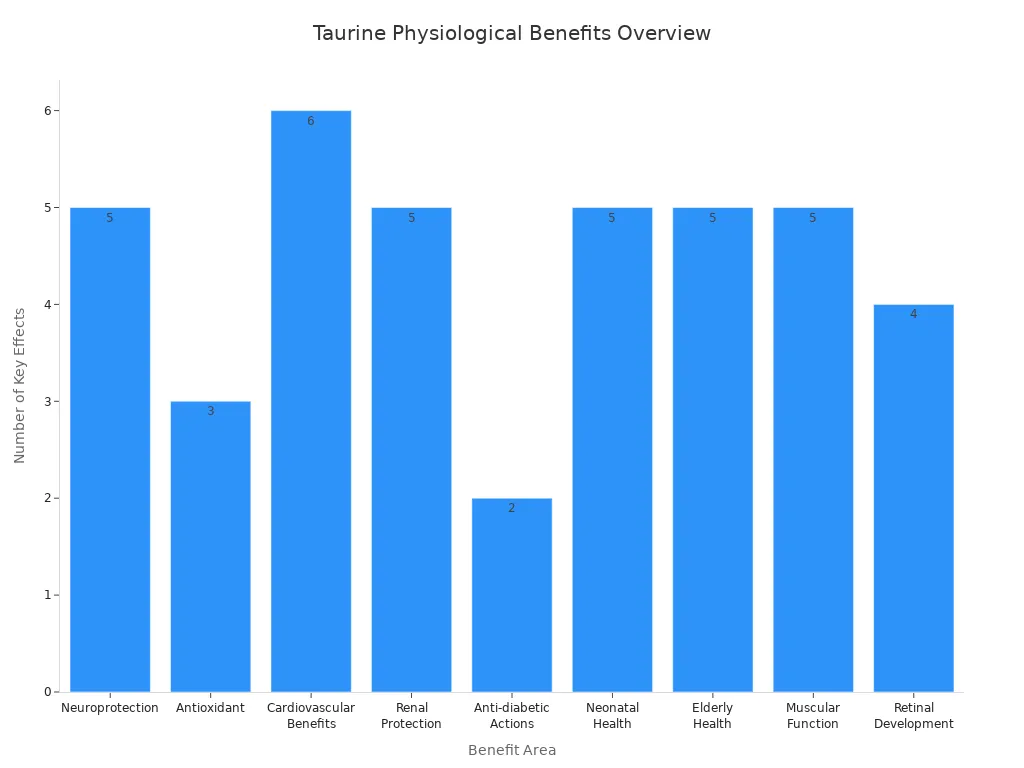
Role in Relaxation
Taurine plays a major role in relaxation and stress management. Research shows that people with anxiety or depression often have lower taurine levels in their brains and blood. Supplementing with taurine can help improve mood and reduce anxiety. Taurine protects brain cells and supports healthy connections between neurons, which helps the brain handle stress. It also affects certain brain receptors that control mood and relaxation. By supporting these systems, taurine helps people feel calmer and sleep better. Many experts see taurine as a promising option for anxiety reduction and improving sleep quality. Its ability to support both mental and physical health makes taurine valuable for overall well-being.
Magnesium for Sleep
Sleep Support
Magnesium plays a vital role in supporting sleep and overall health. This mineral helps balance neurotransmitters in the brain, which control signals that either excite or relax the nervous system. When people experience anxiety or racing thoughts at night, magnesium can help calm the mind and body. Dr. Denise M. Millstine from Mayo Clinic explains that magnesium for sleep works by maintaining this balance, making it easier to fall asleep and stay asleep. Magnesium also supports melatonin production, which tells the body when it is time to rest.
People who struggle with restless legs syndrome or leg cramps often find relief with magnesium supplementation. Clinical studies show that magnesium treatment can improve sleep, especially for those with magnesium deficiency. Safe doses usually range from 250 to 500 milligrams at bedtime. Magnesium citrate has strong evidence for sleep benefits, but some may prefer magnesium glycinate or oxide if they want to avoid digestive side effects. Magnesium for sleep not only helps with falling asleep but also supports deep, uninterrupted rest.
A table below summarizes the effects of magnesium supplementation on sleep:
| Sleep Parameter | Effect of Magnesium Supplementation | Notes |
|---|---|---|
| Sleep Onset Latency | Reduced by ~17 minutes | Statistically significant |
| Sleep Efficiency | Some improvement reported | Evidence uncertain |
| Total Sleep Time | Increased by ~16 minutes | Not statistically significant |
Note: Most people tolerate magnesium well at doses below 1 gram per day.
Circadian Rhythm
Magnesium helps regulate the circadian rhythm, which is the body’s internal clock for sleep and wake cycles. This mineral supports GABA activity, promoting relaxation and preparing the body for sleep. Magnesium also helps regulate melatonin, the hormone that signals when it is time to sleep. By calming the nervous system and reducing stress, magnesium treatment can improve sleep patterns and support emotional balance.
- Magnesium activates GABA receptors, increasing relaxation.
- It boosts melatonin production, helping maintain a healthy circadian rhythm.
- Magnesium deficiency is linked to sleep problems, such as insomnia.
- Supplementation can improve sleep onset and maintenance, especially in older adults.
Magnesium for sleep works best when combined with other nutrients like melatonin and vitamin B complex. Together, these nutrients can improve sleep quality and reduce disturbances. While melatonin directly controls the sleep-wake cycle, magnesium supports these processes by stabilizing the nervous system. People with magnesium deficiency often notice better sleep and improved health after starting magnesium supplementation. Magnesium also supports muscle relaxation, which can help prevent nighttime discomfort and support heart health.
Scientific Evidence
Research on Synergy
Researchers have explored how magnesium and taurine work together to support sleep and overall health. Clinical trials show that magnesium supplementation can lead to better sleep quality, improved mood, and increased deep sleep. In one randomized, double-blind, placebo-controlled crossover trial, 31 adults with nonclinical insomnia symptoms received magnesium for two weeks. The study measured sleep quality, mood, and activity using both self-reports and wearable devices. Participants who took magnesium reported significant improvements in sleep quality, sleep duration, deep sleep, and sleep efficiency. They also showed better readiness and heart rate variability, which supports cardiovascular health and heart function. No adverse events occurred, and all participants completed the study.
| Aspect | Details |
|---|---|
| Study Design | Randomized double-blind placebo-controlled crossover pilot trial |
| Participants | 31 adults with nonclinical insomnia symptoms, mean age 46.01 |
| Intervention | Magnesium supplementation (1 g/day of Upgraded MagnesiumTM) vs. placebo, 2 weeks each |
| Outcome Measures | Sleep quality, mood, activity (self-reports and objective measures via Oura Ring) |
| Key Findings | Significant improvements in sleep quality, mood, sleep duration, deep sleep, sleep efficiency, readiness, activity balance, and heart rate variability readiness (p < .05) |
| Non-significant | Improvements in restorative sleep, anxiety, perceived stress, fatigue (p > .05) |
| Safety & Adherence | No adverse events, 100% adherence |
| Conclusion | Magnesium supplementation may effectively improve sleep and mood; longer trials recommended |
Meta-analyses of amino acid supplements, which include taurine, also show significant improvement in subjective sleep quality. These studies suggest that amino acids can help people fall asleep faster and stay asleep longer. Magnesium and taurine together may offer even greater benefits for sleep and cardiovascular health. Both nutrients support the heart and help regulate blood pressure, which can improve sleep patterns and overall health.
| Supplement Type | Effect on Subjective Sleep Quality | Notes on Evidence and Recommendations |
|---|---|---|
| Amino Acids | Significant improvement (MD -1.27, 95% CI -2.35 to -0.20) | Included in meta-analysis with low heterogeneity (I2=0%) |
| Melatonin | Significant improvement (MD -1.21, 95% CI -2.17 to -0.24) | High heterogeneity (I2=79%) |
| Vitamin D | Significant improvement (MD -1.63, 95% CI -3.15 to -0.10) | High heterogeneity (I2=85%) |
| Magnesium | Discussed as potentially beneficial but insufficient data for meta-analysis | Further research needed |
| Zinc, Resveratrol, Nitrate | Potential benefits discussed, no conclusive meta-analysis data | Further research needed |
| Taurine | Not mentioned or evaluated in the review | No evidence found |
Note: While taurine has not been studied as much as magnesium for sleep, its role as an amino acid suggests it may help improve sleep quality, especially when combined with magnesium.
Mechanisms—GABA and Brain Activity
Magnesium and taurine both affect the brain’s neurotransmitter systems, which control sleep and relaxation. Magnesium acts as a GABA receptor agonist. It binds to GABA receptors and increases their responsiveness. This action helps calm the nervous system and promotes restful sleep. Magnesium also blocks NMDA receptors, which are linked to excitatory signals in the brain. By blocking these receptors, magnesium reduces anxiety and supports heart and cardiovascular health. Magnesium inhibits calcium channels, which helps relax muscles and further supports sleep.
Taurine works as a weak GABA agonist. It activates extrasynaptic GABA(A) receptors, especially in the thalamus. This part of the brain helps control sleep cycles and regulates neuronal excitability. Taurine calms specific brain cells and supports inhibitory effects, making it easier to fall asleep and stay asleep. Together, magnesium and taurine help balance brain activity, reduce stress, and support deep, restorative sleep.
| Modulator | Mechanism of Action on GABAergic Activity | Effect on Sleep and Brain Activity |
|---|---|---|
| Magnesium | Acts as a GABA receptor agonist by binding and mimicking GABA, increasing receptor responsiveness; blocks NMDA receptor (excitatory), reducing excitatory neurotransmission and anxiety; inhibits calcium channels, promoting muscle relaxation | Enhances calming effects of GABA, reduces anxiety and restlessness, promotes relaxation and restful sleep; magnesium deficiency linked to sleep disorders |
| Taurine | Functions as a weak GABA agonist; activates extrasynaptic GABA(A) receptors especially in the thalamus, regulating neuronal excitability | Helps calm specific brain cells, regulates excitability in sleep-related brain regions, supports inhibitory GABAergic effects to promote sleep |
Magnesium and taurine also support mitochondrial function in brain and heart cells. Healthy mitochondria produce energy for the body and help maintain heart and cardiovascular health. When magnesium and taurine levels are optimal, the body can better manage stress and maintain a steady heart rhythm during sleep. This balance leads to improved sleep quality and better overall health.
Tip: People who want to support their sleep and heart health should consider nutrients that help regulate neurotransmitters and support cardiovascular health.
Practical Use
Food Sources
Many foods provide natural sources of magnesium and taurine. Leafy green vegetables, nuts, brown rice, whole grain bread, avocados, dark chocolate, fruits, fish, dairy, and meat all contain magnesium. People who eat a balanced diet with these foods often meet their daily magnesium needs. For taurine, seafood stands out as the richest source. Fish like yellowfin tuna and tilapia, shellfish such as scallops, clams, and mussels, and even nori seaweed offer high concentrations. Dark meats from turkey, chicken, and beef also supply taurine, though in smaller amounts.
| Food Item | Taurine Concentration (mg) |
|---|---|
| Scallops | Up to 827 mg per 100 grams |
| Yellowfin Tuna | Up to 964 mg per 100 grams |
| Tilapia (dark muscle) | About 972 mg per 150 grams filet |
| Nori Seaweed | Up to 1300 mg per 100 grams |
| Clams | About 520 mg per 100 grams |
| Mussels | Up to 655 mg per 100 grams |
| Carp (dark meat) | 868 mg per 150 grams |
| Catfish | Almost 700 mg per 150 grams |
| Octopus | About 335 mg per 3-ounce portion |
| Squid | 219 mg per 3-ounce portion |
| Turkey (dark meat) | Up to 306 mg per 100 grams |
| Chicken (dark meat) | About 170 mg per 100 grams |
| Beef | Rich in taurine (exact mg not specified) |
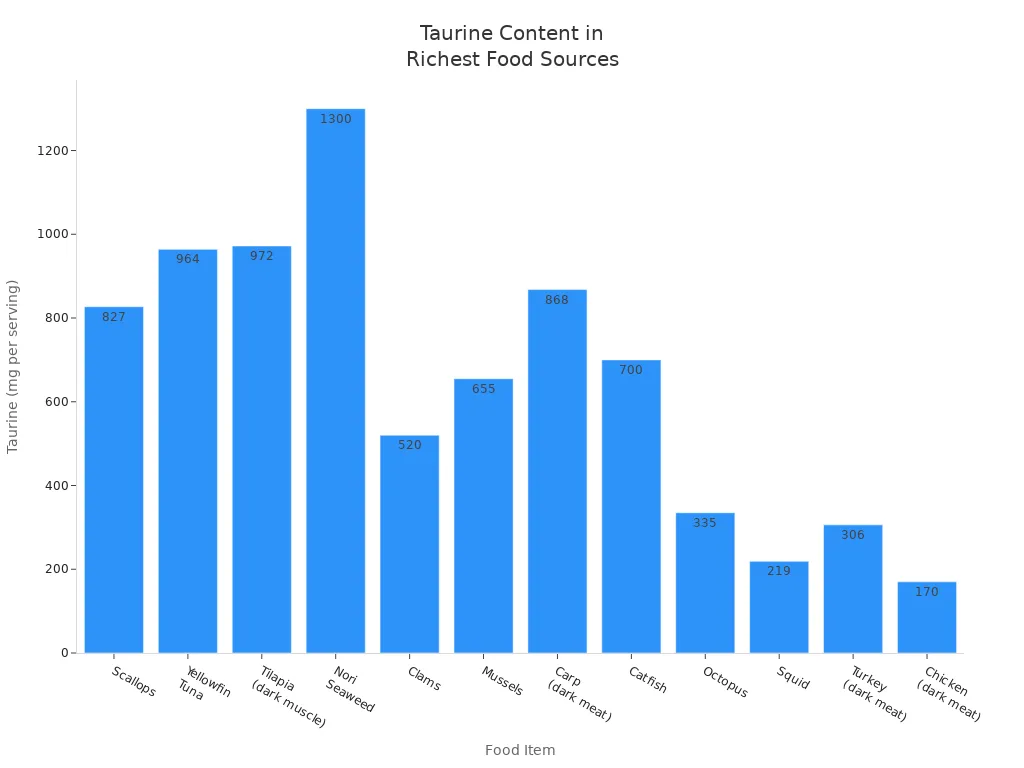
Supplementation
Some people may not get enough magnesium or taurine from food alone. In these cases, magnesium supplementation and taurine supplementation can help support sleep. Several forms of magnesium supplements exist. Magnesium glycinate and magnesium taurate are popular for their calming effects and gentle action on the stomach. Magnesium citrate also supports muscle relaxation but may cause mild digestive effects. Magnesium threonate helps with brain function and may benefit those with sleep issues related to overstimulation.
| Supplement Form | Key Benefits for Sleep Support | Additional Notes |
|---|---|---|
| Magnesium Glycinate | High bioavailability; calming effects due to glycine; improves sleep quality and reduces anxiety | Gentle on stomach; ideal for sensitive digestion or sleep-related anxiety |
| Magnesium Citrate | Well-absorbed; supports muscle relaxation; reduces insomnia symptoms | May cause mild laxative effect; start with low dose to avoid GI discomfort |
| Magnesium Taurate | Combines magnesium with taurine; supports nervous system relaxation, cardiovascular health, and anxiety reduction | Contributes to deeper rest; taurine component aids nervous system relaxation |
| Magnesium Threonate | Crosses blood-brain barrier; supports cognitive function and anxiety reduction | Neuroprotective benefits indirectly support sleep, especially for brain fog or overstimulation |
Tip: Magnesium supplements work best when taken 30–60 minutes before bedtime to help the body relax and prepare for sleep.
Dosage and Timing
Proper dosage and timing improve the benefits of magnesium supplementation and taurine supplementation for sleep. Adults should aim for 400–420 mg of magnesium per day for men and 310–320 mg for women. The tolerable upper intake level for magnesium supplements is 350 mg per day. Splitting the dose between morning and night can reduce side effects like stomach cramps. For sleep, magnesium supplementation should occur in the evening, about 30–60 minutes before bed.
Taurine supplementation usually ranges from 500 mg to 2,000 mg daily. Some short-term studies use up to 3,000 mg. Taking taurine before bedtime supports GABA activity in the brain, which helps calm the mind and improve sleep.
| Magnesium Form | Sleep Benefits | Recommended Dosage (mg/day) | Optimal Timing |
|---|---|---|---|
| Magnesium Glycinate | Contains glycine, an amino acid that promotes calmness and better sleep | Aligns with NIH RDA: 310–420 mg total intake | 30–60 minutes before bedtime |
| Magnesium Taurate | Combines magnesium with taurine, supports GABA activity and nervous relaxation | Same as above, with supplement UL of 350 mg | 30–60 minutes before bedtime |
- The NIH recommends consulting a healthcare provider before starting any supplement, especially for those with health conditions or who take medications.
- Splitting magnesium supplementation into two servings can improve absorption and reduce side effects.
Safety and Precautions
Who Should Avoid
Not everyone should use magnesium or taurine supplements for sleep. People with kidney disease or severe heart problems face higher risks when taking magnesium. Children, pregnant women, and breastfeeding mothers should avoid magnesium taurate unless a healthcare provider gives approval. Those with allergies to any supplement ingredients must not use these products. Individuals who take prescription medications, herbs, or other supplements should check for possible interactions. Some medications, such as blood pressure drugs or insulin, may interact with magnesium or taurine and cause low blood pressure or low blood sugar. People with a history of magnesium deficiency should consult a doctor before starting any new supplement.
Side Effects
Most people tolerate magnesium and taurine well, but side effects can occur. Magnesium taurate may cause loose stools, abdominal cramping, or diarrhea. Starting with a low dose, taking supplements with food, and staying hydrated can help reduce these effects. High doses of magnesium may lead to toxicity, which can cause low blood pressure, muscle weakness, irregular heartbeat, or confusion. Taurine may cause nausea, vomiting, or excessive urination. Rare but serious side effects have occurred when taurine is combined with caffeine and alcohol, such as heart rhythm problems or kidney failure. Both supplements can interact with medications and may worsen existing health conditions.
- Common side effects:
- Diarrhea
- Nausea
- Stomach pain
- Muscle weakness
Note: People with magnesium deficiency may notice more side effects if they take high doses without medical supervision.
Consulting a Professional
Healthcare professionals recommend choosing bioavailable forms of magnesium, such as magnesium glycinate or magnesium taurate, for sleep support. They advise following the recommended dietary allowance and splitting doses if needed to reduce side effects. Supplement use should be individualized and supervised by a qualified provider. Age, health status, and existing magnesium deficiency can affect how the body responds to supplementation. Timing also matters; taking magnesium 30–60 minutes before bedtime may improve sleep quality. Always consult a healthcare provider before starting any new supplement, especially if you have health conditions or take medications.
| Aspect | Recommendation |
|---|---|
| Forms of Magnesium | Magnesium glycinate and magnesium taurate are preferred for sleep due to high bioavailability and calming effects. |
| Dosage | Follow NIH RDA: 400–420 mg/day for adult men, 310–320 mg/day for adult women. |
| Timing | Take magnesium supplements 30–60 minutes before bedtime. |
| Safety Considerations | Consult healthcare providers before use; monitor for side effects. |
| Supplementation Advice | Split doses if needed; consider dietary intake and individual needs. |
Taurine and magnesium together support better sleep and improve overall quality of rest. Their synergy helps people fall asleep faster, stay asleep longer, and wake up feeling refreshed. To safely add these nutrients to a sleep routine, individuals can:
- Take two capsules of magnesium taurate daily with meals.
- Split the dose between breakfast and lunch, or take both in the evening for sleep support.
- Avoid exceeding the recommended amount to maintain quality and safety.
- Consult a healthcare provider before starting, especially if taking medications or managing health conditions.
People who focus on these steps may notice a positive change in sleep quality. Regular attention to sleep habits and natural support can lead to lasting improvements in quality of life.
FAQ
Can taurine and magnesium supplements be taken together for sleep?
Yes, individuals can take taurine and magnesium together. Many experts recommend magnesium taurate for sleep support. This combination helps relax the nervous system and may improve sleep quality.
What is the best time to take magnesium taurate for sleep?
Most professionals suggest taking magnesium taurate 30 to 60 minutes before bedtime. This timing helps the body relax and prepares the mind for restful sleep.
Are there any side effects from using taurine and magnesium?
Some people experience mild side effects such as diarrhea, nausea, or stomach cramps. Starting with a low dose and taking supplements with food can help reduce these effects.
Who should avoid magnesium taurate supplements?
Individuals with kidney disease, severe heart problems, or allergies to supplement ingredients should avoid magnesium taurate. Children, pregnant women, and breastfeeding mothers need approval from a healthcare provider before use.
Can food sources provide enough taurine and magnesium for sleep support?
Many people meet their magnesium needs through leafy greens, nuts, and whole grains. Seafood, dark meats, and dairy supply taurine. Some individuals may need supplements if their diet lacks these nutrients.

Poseidon
Master of Nutritional Epidemiology, University of Copenhagen, Herbal Functional Nutrition Researcher
Focus: The scientific application of natural active ingredients such as Tongo Ali, Horny Goat Weed, and Maca to sexual health and metabolic regulation.
Core Focus:
Men: Use a combination of Tongo Ali (an energizing factor) + Maca (an energy reserve) to improve low energy and fluctuating libido.
Women: Use a combination of Horny Goat Weed (a gentle regulator) + Maca (a nutritional synergist) to alleviate low libido and hormonal imbalances.
Stressed/Middle-Aged Adults: This triple-ingredient synergy supports metabolism, physical strength, and intimacy.
Product Concept:
Based on traditional applications and modern research (e.g., Tongo Ali promotes testosterone-enhancing enzyme activity, and icariin provides gentle regulation), we preserve core active ingredients and eschew conceptual packaging—using natural ingredients to address specific needs.
Simply put: I'm a nutritionist who understands "herbal actives." I use scientifically proven ingredients like Tongo Ali, Epimedium, and Maca to help you make "sexual health" and "nutritional support" a daily routine.
